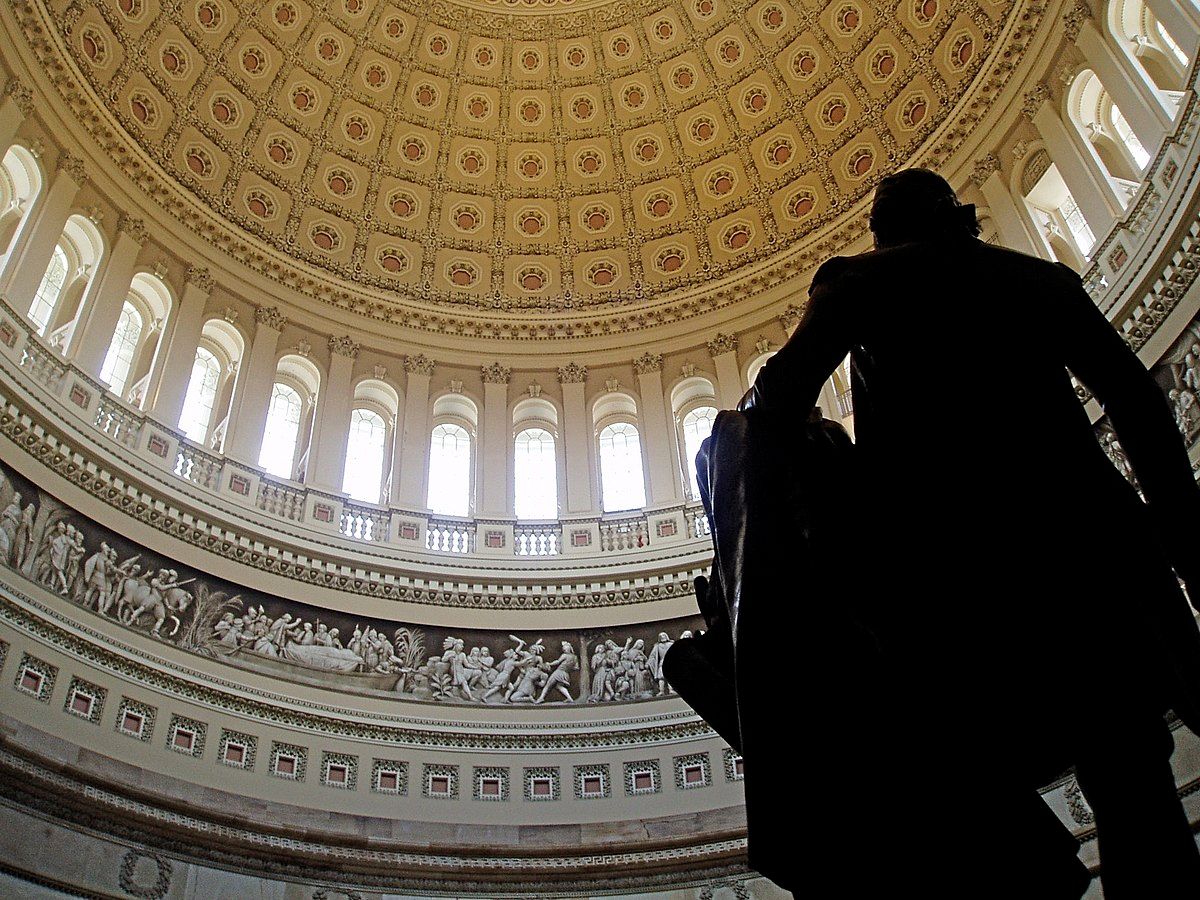The debate over federal legalization of marijuana in the United States is a complex and multifaceted issue that touches on various aspects of policy and society. With increasing public support and state-level decriminalization, the conversation has shifted toward the national stage. This article explores the impact of potential federal legalization on U.S. policy, societal norms, public health, economic prospects, and the ongoing struggle for racial justice, especially in the context of the War on Drugs.
Key Takeaways
- Public opinion on marijuana legalization has reached record highs, with a Gallup poll indicating 70% of U.S. adults now support federal legalization, reflecting a significant shift over the past decades.
- Legalization at the federal level could address historical racial injustices perpetuated by the War on Drugs, offering a chance for institutional reform and recognition of past harms, particularly in communities of color.
- The U.S. cannabis market faces a complex regulatory environment, with under half of states legalizing recreational use, posing challenges for companies and investors navigating the fragmented landscape.
- Critics argue that marijuana legalization exacerbates social pathologies and undermines civic responsibility, while proponents highlight the potential economic benefits and the need for policy reconsideration.
- Political dynamics play a crucial role, with bipartisan efforts emerging to decriminalize marijuana at the federal level, although President Biden has yet to endorse such a policy position.
Evaluating the Success of Decriminalization

State-Level Legislation and Public Opinion
The landscape of marijuana legislation at the state level is a patchwork of policies reflecting diverse public sentiments. Most Americans now live in a legal marijuana state, with a significant number having access to at least one cannabis dispensary in their county. This accessibility underscores the shifting public opinion towards marijuana use and its legal status.
However, recent votes in Arkansas, North Dakota, and South Dakota, where proposals to legalize recreational marijuana were defeated, indicate that public opinion is not uniform across the country. The varied outcomes suggest complexities in achieving consensus on federal marijuana legalization.
- Florida, Indiana, and Wisconsin are states to watch as they consider introducing cannabis legislation in 2024.
- Virginia has recently approved retail sales bills, signaling a move towards more liberal cannabis policies.
- In contrast, Florida’s push for THC potency caps has stalled, reflecting ongoing debates about the regulation of cannabis products.
The question remains: has decriminalization been successful, or is it time to revisit these policies with a more critical perspective? The debate continues as stakeholders present strong arguments for and against the broader legalization of cannabis.
Comparative Analysis of Pre- and Post-Legalization Data
A comprehensive analysis of data before and after the legalization of marijuana reveals significant shifts in societal behaviors and health outcomes. The prevalence of marijuana use disorder among users notably decreased from 35.6 percent to 30.6 percent, according to a JAMA Psychiatry study comparing 2001–2002 data with 2012–2013 data.
The decline in beer sales post-legalization suggests a substitution effect, where consumers prefer legal cannabis over alcohol.
Critics often cite increased marijuana-related ER visits and adolescent abuse, yet fail to account for the potential changes in reporting behavior due to the destigmatization of cannabis use. The data indicates that legalization may not correlate with increased underage consumption.
| Aspect | Pre-Legalization | Post-Legalization |
|---|---|---|
| Marijuana Use Disorder Prevalence | 35.6% | 30.6% |
| Beer Sales | Stable/Increasing | Declining |
As debates continue and more states like Florida, Indiana, and Wisconsin consider legalization, it is crucial to dissect these findings with a critical yet open-minded approach.
The Argument for Reconsideration of Cannabis Policies
The debate surrounding the federal legalization of marijuana hinges on a myriad of complex factors, from public health to social justice. The call for policy reconsideration is not just about legal access to cannabis, but also about rectifying the historical injustices associated with its prohibition.
The momentum for change is palpable, with advocates highlighting the need for a cohesive federal stance that aligns with the evolving public sentiment and state-level reforms.
The arguments for reconsideration are multifaceted:
- Public Opinion: A growing majority of Americans now support legalization, signaling a shift in societal attitudes.
- Economic Impact: Legalization could lead to significant economic benefits, including job creation and tax revenue.
- Criminal Justice Reform: There is an urgent need to address the disproportionate impact of marijuana laws on communities of color.
- Regulatory Consistency: Federal legalization would resolve the current conflict between state and federal laws, providing clarity for businesses and consumers.
As the conversation progresses, it is crucial to weigh these considerations carefully to ensure that any policy changes serve the public interest and promote equity.
Societal Implications of Federal Marijuana Legalization

The Influence on Civic Responsibility and Social Conduct
The federal legalization of marijuana has sparked a significant debate regarding its impact on civic responsibility and social conduct. The concern is that increased accessibility may lead to a decline in societal norms and values. Critics argue that the substance’s psychoactive effects can impair judgment and diminish the sense of duty that individuals owe to their community.
Proponents, however, suggest that responsible use does not necessarily erode civic engagement and may, in fact, alleviate social tensions by reducing criminalization and fostering a more tolerant society. The true influence of legalization on civic responsibility remains a complex and nuanced issue, with arguments on both sides of the spectrum.
The discourse on marijuana’s role in society challenges the balance between personal liberty and communal well-being.
To better understand the societal implications, consider the following areas affected by legalization:
- Public Morality: Debates on whether marijuana use aligns with societal values.
- Community Engagement: Observations on participation in civic activities.
- Law Enforcement: Shifts in police focus from prohibition to prevention.
- Youth Education: Strategies to educate young people about responsible use.
Impact on Public Health and Safety
The federal legalization of marijuana brings with it a complex set of implications for public health and safety. The potential for increased accessibility and use raises questions about the broader societal impacts.
One concern is the introduction of unknown hazards to consumers, particularly as the market expands rapidly without the stringent controls typically applied to pharmaceuticals. Critics argue that it has been grossly irresponsible to legalize such a potent drug without rigorous evaluation, akin to releasing unapproved cancer drugs into the market.
The COVID-19 pandemic has also influenced marijuana use patterns, with a notable increase in consumption for medical purposes due to heightened levels of anxiety and depression. This shift underscores the need for a nuanced understanding of cannabis as both a potential therapeutic agent and a substance with abuse potential.
A study highlighted in the title ‘Recreational Marijuana Legalization and Workplace Injuries’ suggests that recreational marijuana laws (RMLs) allowing sales were associated with a 10% increase in workplace injuries among younger adults. This data points to the necessity for ongoing research and policy adjustments to mitigate unintended consequences of legalization.
The evolving landscape of marijuana use and its regulation requires vigilant monitoring to ensure that public health and safety are not compromised in the pursuit of economic and social benefits.
The Economic Consequences of Legalization
The federal legalization of marijuana is often touted for its potential to generate significant tax revenue and create jobs. However, the economic impact of legalization extends beyond these obvious benefits. Critics argue that the costs associated with legalization, such as those related to public health and safety, may offset the financial gains. Yet, this perspective may overlook the broader economic advantages, including the reduction in law enforcement expenses and the positive ripple effects on related industries.
- Tax Revenue: Legal marijuana markets have consistently shown an increase in state tax revenues. This is a direct result of regulated sales and can be a boon for state budgets.
- Job Creation: The cannabis industry has created a multitude of jobs, from cultivation and retail to ancillary services.
- Law Enforcement Savings: Legalization can lead to significant savings in law enforcement and the criminal justice system by reducing the number of marijuana-related arrests and prosecutions.
The debate on the economic impact of marijuana legalization is complex, with arguments on both sides. While some studies have conflated correlation with causation, it is essential to consider the full spectrum of economic implications, including the expansion of liberty and consumer satisfaction.
As the conversation around federal legalization continues, it is crucial to analyze all facets of its economic consequences, weighing both the potential benefits and the costs that may arise.
The War on Drugs and Racial Justice

Historical Context and Racial Disparities
The War on Drugs has been a significant policy in the United States since the 1970s, characterized by a dramatic increase in penalties, enforcement, and incarceration rates for drug offenses. This approach has disproportionately affected communities of color, leading to what many consider an institutionalization of injustice and inequity.
The effects of the War on Drugs have been far-reaching, embedding diminished opportunities into the fabric of affected communities.
The following table illustrates the disparities in incarceration rates for drug offenses among different racial groups:
| Racial Group | Incarceration Rate (per 100,000) |
|---|---|
| Black | 2,306 |
| Hispanic | 831 |
| White | 450 |
These figures highlight the stark contrast in how drug policies have been enforced across racial lines, contributing to a cycle of marginalization and social exclusion.
Potential for Federal Policy to Address Past Injustices
The federal legalization of marijuana presents a unique opportunity to address the historical injustices perpetuated by the War on Drugs. For many, this is not just about legal reform; it’s about acknowledging and rectifying the years of damage inflicted on individuals and communities, particularly those of color. The Last Prisoner Project emphasizes the need for retroactive relief and the importance of transitioning from a punitive system to one focused on justice and rehabilitation.
Federal policy can play a pivotal role in this transformation. While federal pardons are a step forward, they do not equate to expungement. An expungement process would be more effective in restoring the rights and dignity of those affected. Representative Tarnas’s engagement with policy experts like Frank Stiefel from the Last Prisoner Project highlights the ongoing discussions on how to implement such changes.
The potential for federal policy to catalyze criminal legal reform and social equity is immense. It’s a matter of leveraging the right reforms to ensure that the promise of a brighter future is restored to those who have been sidelined by outdated cannabis policies.
Despite the lack of full support for federal legalization from the current administration, there are actionable steps that can be taken. These include state-initiated expungement processes and legislative efforts to dismantle the institutionalization of injustice that has disproportionately affected marginalized communities.
The Role of Legalization in Institutional Reform
The federal legalization of marijuana is not just a change in the legal status of a substance; it is a transformative moment for institutional reform. Federal legislation pertaining to cannabis reform now commands significant resources and attention in Congress, reflecting a shift in priorities and a recognition of past policy failures. This legislative momentum is a testament to the growing consensus that the War on Drugs has had disproportionate impacts on certain communities, necessitating a pivot towards justice and rehabilitation.
The potential for legalization to address past injustices is immense. For individuals and families affected by outdated policies, this moment represents a chance for rectification and a step towards healing societal wounds. However, the current legalization bill does not come close to repairing the harms for individuals criminalized during the War on Drugs. To ensure justice, any bill must include provisions for state-initiated record clearance and resentencing.
The push to legalize cannabis is more than a policy change; it’s a call to recognize and rectify the years of damage inflicted by prohibitionist policies.
The dialogue surrounding legalization and institutional reform continues to evolve. On May 25, a webinar hosted by Governance Studies at Brookings highlighted the opportunities and challenges in advancing equity through cannabis policy reform. The discussion underscored the need for comprehensive measures that go beyond legalization to include economic opportunities and restorative justice for communities of color.
The Complex Landscape of the U.S. Cannabis Market

Challenges for Cannabis Companies and Investors
The cannabis industry, while burgeoning, is navigating a complex and often turbulent landscape. Banking remains a significant hurdle, as U.S. cannabis companies are barred from traditional banking services, complicating financial transactions and access to capital. This limitation not only affects day-to-day operations but also hampers long-term growth and investment strategies.
In addition to financial constraints, cannabis companies face intense competition, both from within the industry and from non-cannabis entities entering the market. The dynamic nature of start-ups and established firms vying for market share creates a volatile environment for investors seeking sustainable returns.
The legal and regulatory framework presents a labyrinthine challenge, with varying laws across states and countries. This patchwork of regulations necessitates a nimble approach to compliance, marketing, and distribution, further straining resources.
The industry’s rapid growth, projected to reach nearly $149 billion by 2031, underscores the potential rewards for those who can successfully navigate these challenges. However, the path forward is fraught with economic and regulatory obstacles that demand innovative solutions and resilient business models.
Federal vs. State Regulatory Environments
The interplay between federal and state regulations creates a complex landscape for cannabis companies operating in the U.S. Federal prohibition remains a significant barrier, despite states’ efforts to legalize and regulate marijuana within their borders. This dichotomy not only affects the legality but also the financial operations of cannabis businesses.
The lack of harmony between state legalization and federal restrictions leads to a precarious situation for cannabis companies, particularly in areas such as banking and interstate commerce.
For instance, while the SAFE Banking Act aims to protect financial institutions serving cannabis businesses in legal states, its repeated failures in the Senate highlight the ongoing challenges. The STATES Act also proposes to amend the Controlled Substances Act, acknowledging state sovereignty in cannabis law enforcement.
- Banking Restrictions: Limited access to capital and banking services.
- Interstate Commerce: Complexities in transporting cannabis across state lines.
- Taxation: Inability to deduct business expenses under federal tax law.
- Licensing: Divergent state licensing requirements complicating expansion.
The current regulatory environment necessitates that cannabis companies navigate a labyrinth of state-specific regulations while also contending with federal constraints. This situation underscores the need for a more unified approach to cannabis policy in the U.S.
Future Prospects for Nationwide Legalization
The trajectory of cannabis legalization in the United States is approaching a critical juncture. With a majority of U.S. demographics, including conservatives and those over 55, now in favor of legalization, the stage is set for a significant policy shift. The question remains whether federal action will follow suit, given the varied public opinion across states.
- In 2024, states like Florida, Indiana, and Wisconsin are poised to introduce cannabis legislation, signaling a continued trend towards decriminalization.
- Despite this momentum, the defeat of legalization proposals in Arkansas, North Dakota, and South Dakota in November 2022 underscores the complexity of achieving nationwide consensus.
The future of federal marijuana legalization hinges not only on public sentiment but also on the political and economic landscapes that shape legislative priorities. As the nation observes the outcomes of state-level legalization, the federal government’s stance on cannabis remains a pivotal factor in determining the extent of reform and the harmonization of laws across the country.
Political Dynamics Surrounding Cannabis Legalization

Bipartisan Perspectives on Federal Decriminalization
The debate over federal decriminalization of marijuana transcends traditional party lines, with bipartisan lawmakers expressing concern over current policies. Notably, Earl Blumenauer (D-OR) and Andy Harris (R-MD) have been deeply troubled by the barriers to cannabis research, demanding answers on how the process is being facilitated.
The evolving landscape of cannabis legislation at the state level has prompted a reevaluation of federal policies. As discussions continue, the bipartisan nature of the issue becomes increasingly apparent, with both sides of the aisle recognizing the need for change.
The following points highlight the bipartisan agreement on key aspects of marijuana policy reform:
- Recognition of the need for expanded research into cannabis and its potential benefits.
- Agreement on the inconsistency of federal laws with the changing state legislation and public opinion.
- Support for addressing the discriminatory enforcement of marijuana prohibition.
- Advocacy for clemency and retroactive relief for those convicted under outdated laws.
Legislative Proposals and Political Will
The landscape of cannabis legislation is a patchwork of state-level initiatives and stalled federal efforts. The political will to push through comprehensive cannabis reform at the federal level remains uncertain, despite a growing number of legislative proposals. Recent actions by states such as Virginia, which approved adult-use retail sales bills, indicate a shift towards more progressive policies.
- Virginia lawmakers approve adult-use retail sales bills.
- Florida’s push for THC potency caps stalls.
- Hawai’i introduces a bill for state-initiated expungement process.
The momentum for change is palpable, with states taking the lead in shaping cannabis policy. However, the absence of a unified federal stance continues to create a fragmented legal landscape.
The Marijuana Policy Project highlights that only 24 states have legalized cannabis for adults, with 12 states lacking even a medical cannabis law. This disparity underscores the need for federal legislation that can harmonize the legal status of cannabis across the nation.
Influence of Public Sentiment on Policy Making
The shift in public sentiment towards marijuana legalization has become a pivotal factor in shaping U.S. policy. As recent data indicates, a majority across various demographics now endorses the legalization of marijuana, marking a significant departure from past attitudes. This transformation in public opinion is not only reflective of a cultural shift but also underscores the potential for policy to evolve in response to societal trends.
Public support for legalization has seen a steady climb, with recent figures suggesting an overwhelming majority in favor. This consensus spans across age groups and political affiliations, suggesting a unified shift in perspective that transcends traditional divides. The following table illustrates the growth in support over the years:
| Year | Support for Legalization (%) |
|---|---|
| 1969 | 12 |
| 2013 | 50 |
| Present | >50 |
The implications of this surge in public approval are profound. Policymakers are increasingly finding themselves at a crossroads, where ignoring the collective voice of the electorate could have significant political repercussions. The alignment of legislative action with public sentiment is not just a matter of democratic principle but also a strategic move to maintain political relevance and legitimacy.
Conclusion
The debate over the federal legalization of marijuana in the United States is as potent as the substance itself. With a significant shift in public opinion favoring legalization and the potential to rectify injustices of the War on Drugs, the societal and policy implications are profound. Yet, detractors highlight the exacerbation of social pathologies and the erosion of civic virtues as substantial costs to consider. As the nation grapples with these complex issues, it is clear that the path forward requires a nuanced approach that balances individual liberty with societal well-being. Whether legalization is the panacea its proponents claim or a misstep that future generations will rue, only time will tell. What is certain is that the conversation around cannabis will continue to evolve, reflecting the dynamic nature of American society and its values.
Frequently Asked Questions
Has the decriminalization of marijuana been successful in the United States?
The success of marijuana decriminalization is debated. While public support for legalization has increased significantly, with a Gallup poll indicating a 70% approval rate, critics argue that it has led to a rise in social pathologies and an erosion of civic responsibility.
What are the arguments against the federal legalization of marijuana?
Opponents like former U.S. Attorney General William Barr argue that legalization exacerbates social ills, contributes to a decline in civic responsibility, and results in a ‘doped-up’ nation in decline.
What is the current state of public opinion on marijuana legalization in the U.S.?
Public opinion has shifted significantly over the years, with a record high of 70% of U.S. adults now supporting federal legalization, according to a recent Gallup poll.
How might federal legalization of marijuana address racial injustices?
Federal legalization could help reverse the effects of the racially biased War on Drugs, offering a chance for institutional reform and addressing past injustices, particularly in communities of color.
What are the economic implications of legalizing marijuana at the federal level?
Legalization could stimulate economic growth through job creation, tax revenue, and investment opportunities, but it also poses challenges related to market regulation and the existing disparity between state and federal laws.
What are the potential health and safety impacts of federal marijuana legalization?
While some argue that legalization could lead to increased use and associated health risks, others believe it will reduce the harm caused by the illegal market and allow for better regulation and quality control of cannabis products.





